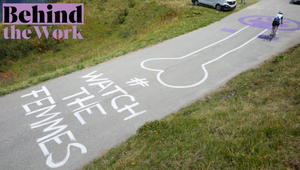
Why Titanium-Winning Idea ‘Dyslexic Thinking’ Is Having a Massive Impact

Despite one in five people worldwide being affected by dyslexia, 97% of the population still view it negatively. This is because the current definition is outdated, classifying dyslexia as a “learning disability,” an “impairment,” or a “medical disorder.” But in fact, recent research has shown that those with dyslexia outperform other people at a wide variety of skills such as creativity, empathy, leadership, and outside the box thinking - skills that are especially valuable in the workplace. This is also proven by the number of incredibly successful businesspeople, creators, inventors, and actors who all have dyslexia – people like Sir Richard Branson, Agatha Christie, Albert Einstein, Steve Jobs, and hundreds of others. The conversation around dyslexia needs to change, and employers need to recognise all the things people with dyslexia CAN do as opposed to focusing on what they can’t do.
So Virgin partnered with Made by Dyslexia, LinkedIn, and Dictionary.com to shift focus to the term ‘Dyslexic Thinking’ – a phrase that highlights all the positive skills people with dyslexia possess. To raise awareness, LinkedIn changed its platform to feature Dyslexic Thinking as an official skill available for the 810 million users to add to their profiles. Dictionary.com then vetted it through their rigorous accreditation process and added it to their dictionary. By recognising dyslexic thinking in such high-profile ways, UK creative agency FCB Inferno was finally able to begin shifting people’s perceptions.
Campaigns about dyslexia had overwhelmingly focused on encouraging the one in five people with dyslexia to change the way that they felt about themselves and to empower them to embrace their difference. FCB Inferno’s research showed that although this had some impact, the real barriers were systemic and that they needed to push for structural and cultural change. This breakthrough allowed the team to shift its focus to changing the minds of cultural institutions, the business sector and business leaders. They recognised that if they could redefine dyslexia and encourage people to accept dyslexia as a skill, this would have a domino effect of making businesses actively promote it as a benefit in the workplace, which in turn would embolden people with dyslexia to come forward.
On March 31st, 2022, Virgin and FCB officially launched the ‘Dyslexic Thinking’ campaign.
Sir Richard Branson launched the campaign on LinkedIn, calling for others to join him in adding the skill to their profile, creating a groundswell of support from celebrities and non-celebrities alike. Dictionary.com followed suit, letting the world know they could now find ‘Dyslexic Thinking’ in one of the world’s most-used dictionaries. A film was also released online that introduced the term ‘Dyslexic Thinking’ by showing how history has been shaped by those who were/are dyslexic. Finally, the campaign used hyper-targeted messaging on LinkedIn tailored to HR professionals encouraging them to actively seek candidates who listed ‘dyslexic thinking’ in their profiles.
The campaign was immediately taken up by international media outlets, gaining coverage from over 250 major global publications including the BBC, the Independent, Business Insider and Bloomberg with an opportunity for 150 million to see it and an earned media value of £1.5M+. Tracking public sentiment across social media, the agency saw positive mentions about dyslexia increase by 1562%, while negative mentions decreased by 4450% from pre-campaign levels - clear indication that the campaign was resonating and starting to change the perception of dyslexia. Within 30 days, 13,000 HR and recruitment leaders had also viewed the film explaining how Dyslexic Thinkers could help take their company to the next level. Finally, and most importantly, over 10,000 people had added ‘Dyslexic Thinking’ as a skill on LinkedIn, a number which continues to grow to this day, and which global companies including Facebook, EY, HSBC, and Microsoft are already seeking out in their recruitment.
After the campaign won a Titanium Lion, as well as two Silver and three Bronze Lions in various categories, LBB’s Alex Reeves asked Austin Hamilton, creative director at FCB Inferno, to reflect on the game-changing campaign.
LBB> Congratulations on all the Lions for Dyslexic Thinking! What was it that you think impressed the juries?
Austin> The juries were undoubtedly impressed by the fact that such a simple idea could have such a massive impact. Reframing the word dyslexia as ‘Dyslexic Thinking’ doesn’t seem like a big deal, but once the term was recognised as a skill on LinkedIn and entered into dictionary.com, it suddenly became a real thing in the world. Now, the one in five people around the globe affected by dyslexia could realise that their neurodiversity was a feature, not a flaw.
LBB> Why was this the right idea for Virgin and Made by Dyslexia?
Austin> Virgin has a long history as a challenger brand and has always championed changing the way people view the world around them. This is because it was founded by a dyslexic thinker; someone who zigged where others zagged and approached problem solving in a completely unique way. So it made perfect sense for them to lead the charge to change the way people think about dyslexia in the workplace. Virgin has a long relationship with Made by Dyslexia, and it was their research that revealed people with dyslexia possess all of the skills needed to make the future of work successful.
LBB> What were the keys in getting LinkedIn and Dictionary.com on board?
Austin> Getting LinkedIn to recognise dyslexic thinking as an official skill was the key to unlocking this campaign. FCB Inferno has a strong relationship with the platform, having worked with them last year on the Cannes Grand Prix-winning initiative with the Big Issue, ‘Raising Profiles’. Once LinkedIn saw the research presented by Made by Dyslexia, they were on board. Dictionary.com then put the term through their extensive vetting process, which monitors how much the word is used and ensures that its usage is growing in the common vernacular and that it is worthy of an official entry.
LBB> Once the skill was added to LinkedIn, what were the keys to communicating that fact?
Austin> Sir Richard Branson launched the campaign on LinkedIn to his 19.7+ million followers, calling for others to join him in adding the skill to their profile, creating a groundswell of support from celebrities and non-celebrities alike. Dictionary.com followed suit, letting the world know they could now find ‘Dyslexic Thinking’ in one of the world’s most-used dictionaries. A film was also released online that introduced the term ‘Dyslexic Thinking’ by showing how history has been shaped by those who were/are dyslexic. Finally, we used hyper-targeted messaging on LinkedIn tailored to HR professionals encouraging them to actively seek candidates who listed “dyslexic thinking” in their profiles.
LBB> How have people and employers engaged with this new skill?
Austin> The response has been overwhelmingly positive, with 10,000+ people adding the skill in the first week. Tracking public sentiment across social media, we saw positive mentions about dyslexia increase by 1562%, while negative mentions decreased by 4450% from pre-campaign levels. Within 30 days, 13,000 HR and recruitment leaders had also viewed the film explaining how dyslexic thinkers could help take their company to the next level.
LBB> What do you think it means for the state of advertising now that this kind of project is winning a Titanium Lion?
Austin> It means nothing but positive things. This campaign proves that a large brand can champion worthy causes with authenticity and to great effect. Advertising doesn’t need to be just about selling products. Truly great campaigns make lasting changes to the world, and by helping to recognise neurodiversity in the workplace as a skill, Virgin is staying true to its brand heart while at the same time making a lasting difference.















